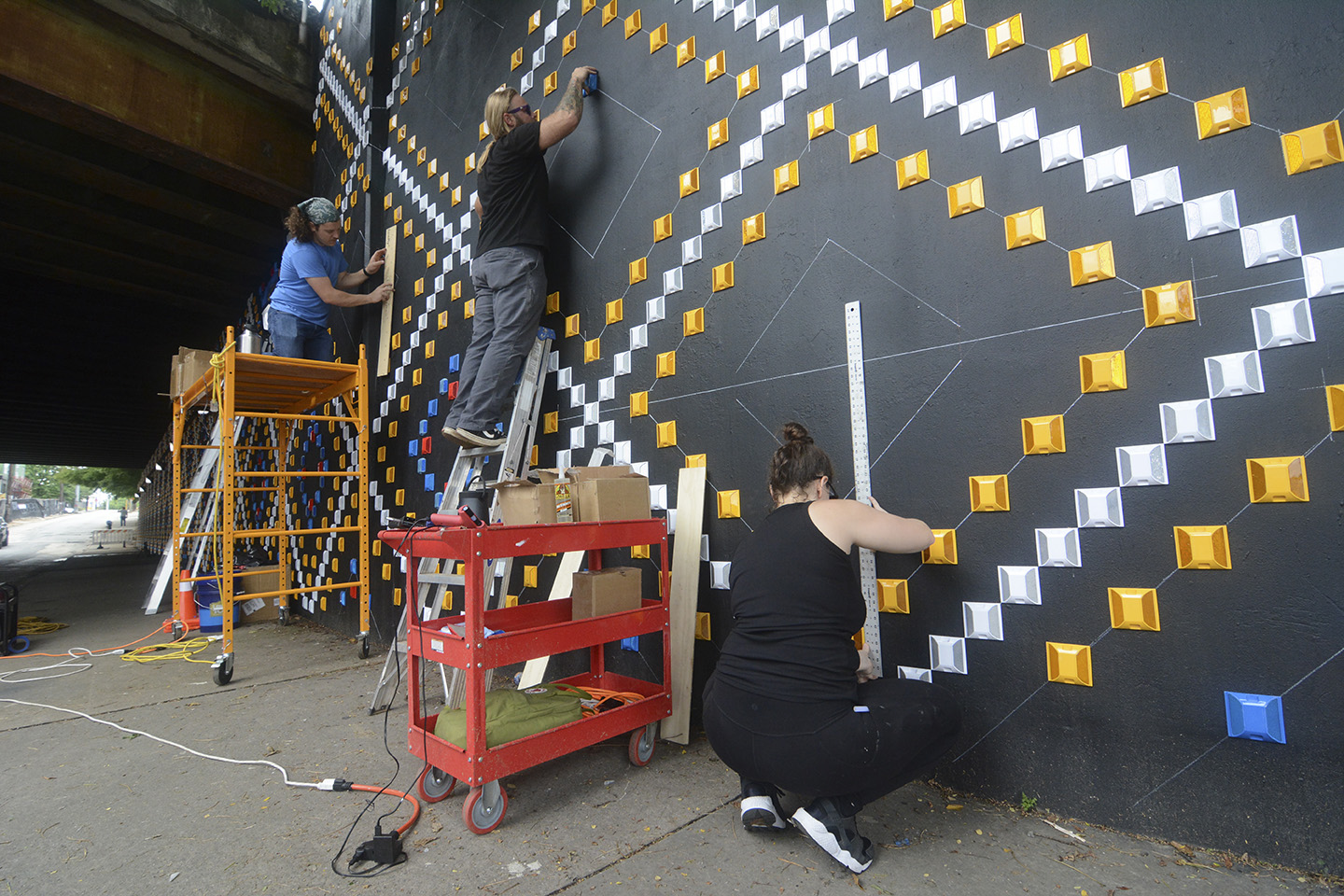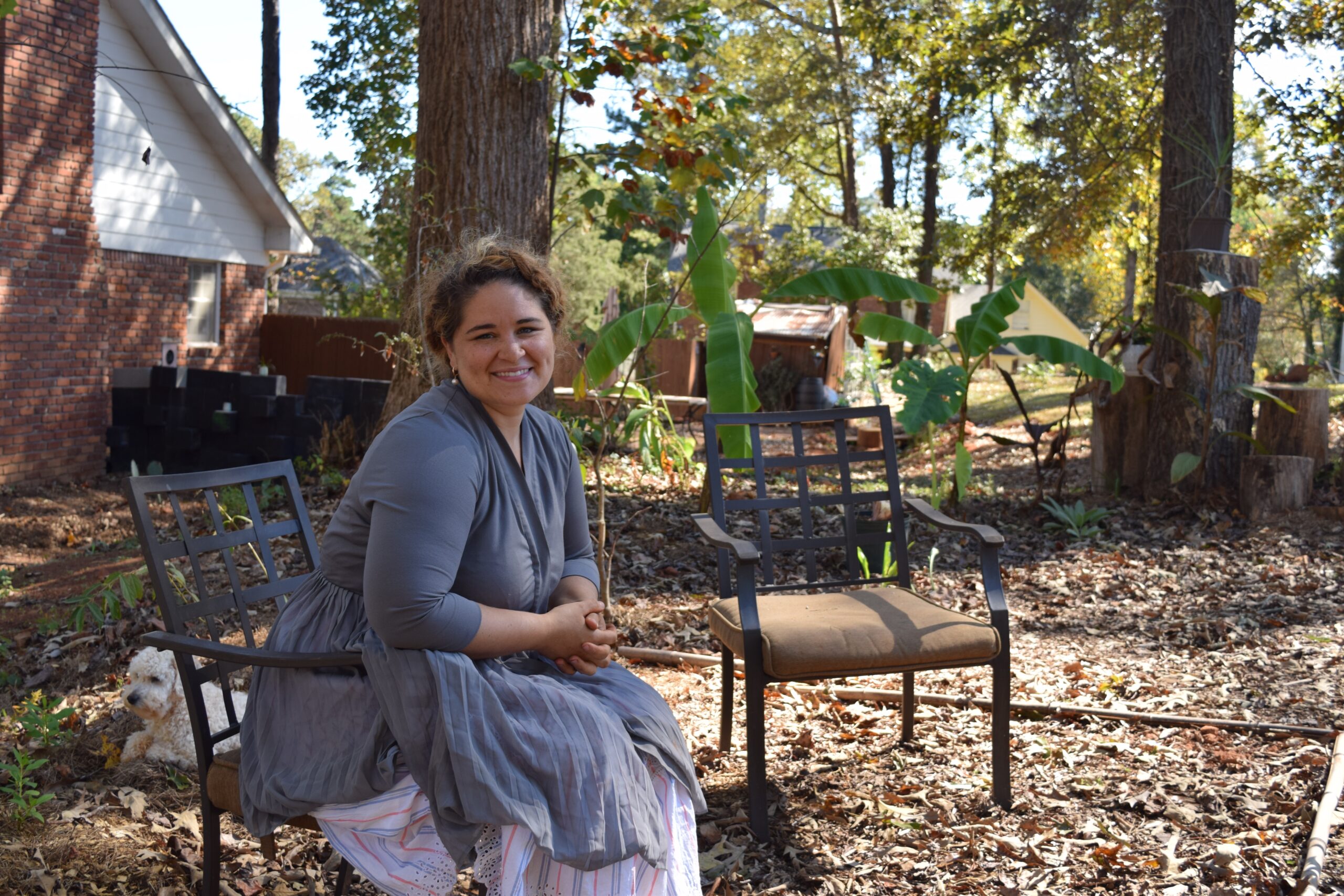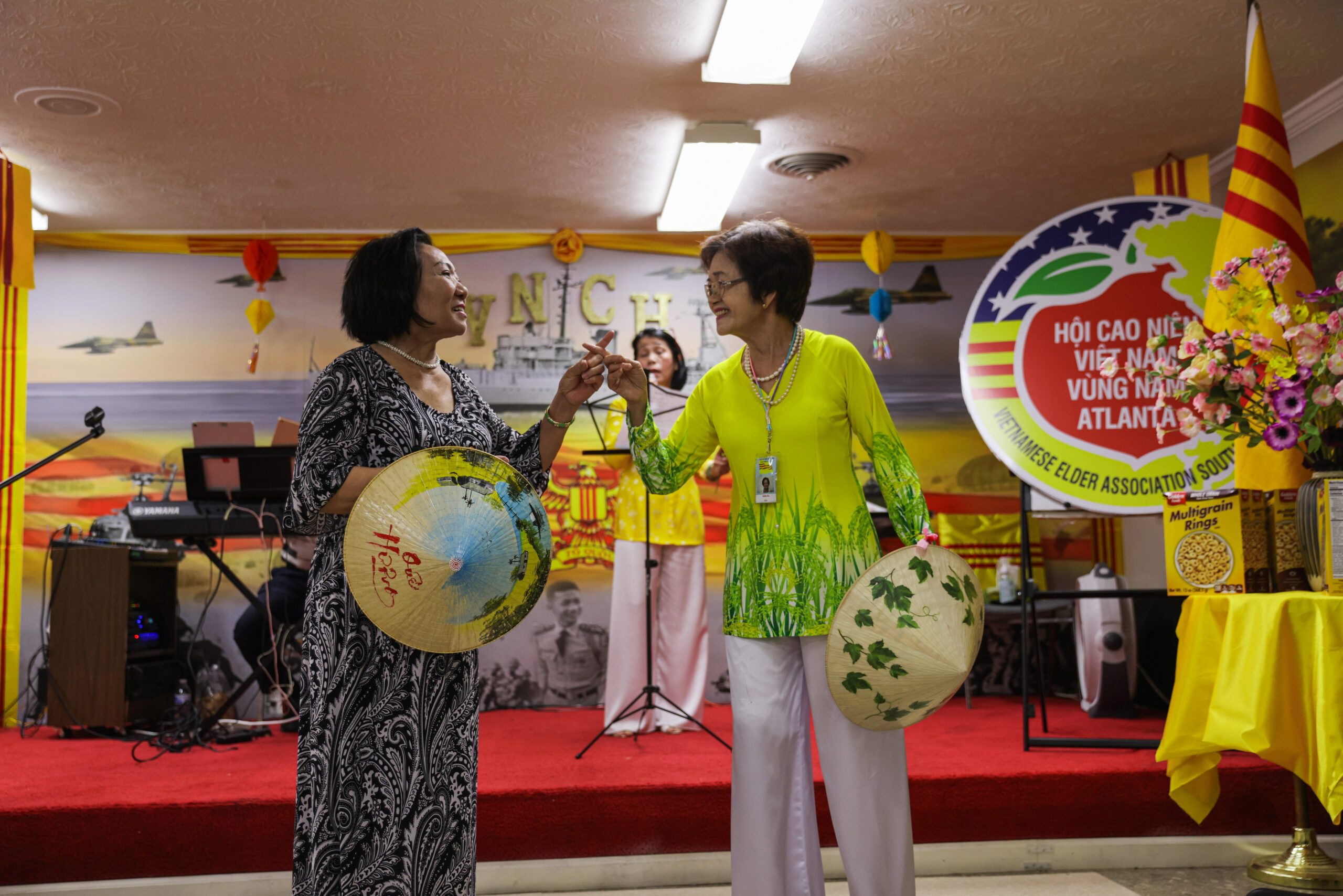This summer, ArtBound, MARTA’s public art program, set King Memorial Station’s Grant Street tunnel dazzlingly, dynamically aglow. The “Reflection Tunnel” project is one of their largest public artworks in Atlanta, a sculptural installation covering the walls of the tunnel with thousands of colorful, luminous road reflector panels, with an interactive storytelling component – the walls are literally embedded with the true stories of real neighborhood community members. ArtBound collaborated with public art strategists at Dashboard, and a local installation team led by artist Adam Bostic to accomplish the beautification of the tunnel. Bostic joined “City Lights” senior producer Kim Drobes along with ArtBound’s Director Katherine Dirga and Dashboard co-founder Courtney Hammond to explain how the project came together, and how it incorporates so much history from the neighborhood it will enrich for years to come.
Hammond works with the Atlanta-headquartered curatorial nonprofit Dashboard to source and engage artists on ambitious community art projects all over the country. “Basically, we had a problem, and they had an answer for us,” said Dirga. “We went to them and said, ‘Hey, this tunnel needs beautification.’”
The tunnel provides a pedestrian walkway from the transit-oriented development underway behind King Memorial Station, also connecting the area to the Sweet Auburn neighborhood and Old Fourth Ward.
“We wanted to just improve the overall experience, knowing Dashboard, knowing that they are able to come up with a lot of really creative solutions for places that a lot of people have given up on before this,” said Dirga. “I thought this was an ideal partnership, and sure enough, they came up with something that was, to my mind, not only really creative and cool, but just really elegant in its simplicity.”
Bostic described how he and the Dashboard team identified the perfect material to level up the look of the tunnel. “The materials being road reflectors, they’re indestructible and they really will be vibrant forever,” said Bostic. “I wanted to make something that was just really almost timeless. It doesn’t need to be something that, after a year or two it doesn’t make sense, but something that will be there forever and be beautiful, and also incorporate other peoples’ stories into it.”
The reflector design will include plaques, black diamonds interspersed among Adam’s reflectors. Here’s where the interactive, historical element comes into play – the plaques will have QR codes that link any passerby with a phone, and a moment to listen, to audio interviews with neighborhood residents sharing their stories. “This is a permanent project, and a very historically rich and important part and neighborhood of Atlanta. We wanted to make sure to pay homage to that,” said Hammond. “The term ‘reflection’ can mean a few things at once; literally, with the reflectors, and also conceptually with the historical archive.”
The interviews were collected with the help of Historic Atlanta and historian Scott Morris, who connected Dashboard to local community leaders active in preserving the area’s legacy – such landmarks as the site of WERD, the first Black-owned radio station in North America.
“Just the kindness that was shone from all these different neighbors’ stories, when we were archiving them, was so powerful that it became a really integral part of the project. We started with six interviews, but there are hundreds of spaces for these plaques,” said Hammond. Dashboard intends to keep growing the historical archival project, and continue to accrue and preserve stories embedded in the tunnel’s vibrant walls.
Roughly 20,000 reflectors were used in the design, installed by a team of about 20 artists. Bostic marveled, “The time that goes into making sure every one of them is absolutely straight and absolutely level…. That’s the art of it to me, is making it almost like when you look down the wall, the lines are perfect. It looks like it’s floating off the wall. And in order to do that, you have to be really meticulous, and manage that install.”
MARTA plans more station beautification projects, eventually hoping to renovate every one of their 38 stations and install large-scale public artworks. “ArtBound’s mission states that we want to reflect and enhance the communities where we reside, so that’s number one for MARTA. We feel that we’re a connector, so we want to make sure that we’re properly serving that role,” said Dirga.
Another project by Dashboard is the Nakamura.ke Glow-in-the-Dark Ramen Bar. The family-run dining experience tours the United States, with pop-up kitchens serving glowing ramen made by award-winning chefs and designers. Hammond said, “We created, collectively, this really beautiful velvet- and gold-laden intimate dining space inside of a 20-foot shipping container… When you open the door, you really do walk into an otherworldly experience.” Hammond described the family lore that informs the theatrics of the experience – a legend in which the Nakamura children, lost after a flood, are on a search for their parents. As the ramen bar travels around the world, and when the ramen and vegetables start to glow, the Nakamura kids are getting closer to their parents.
“It’s also about family-building, and connecting people in really non-traditional ways, which is something that Dashboard is really proud of with every project,” said Hammond.
Audio from the Grant Street “Reflection Tunnel’s” interviews can be heard at www.dashboard.us/reflection-audio.
More on MARTA’s ArtBound, the “Reflection Tunnel,” and related in-person events can be found at https://itsmarta.com/artbound.aspx.
And more about the glowing ramen at Nakamura.ke can be found at www.dashboard.us/glowinthedark-ramen-shop









